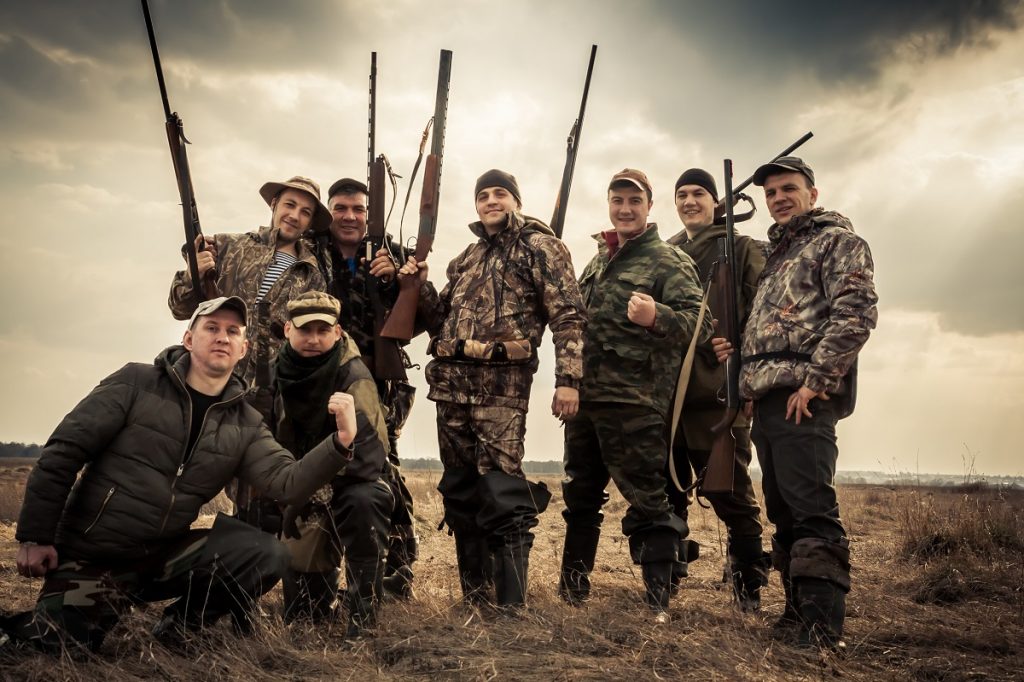- Hunting, practiced by about 25 million Americans, controls animal populations and prevents environmental damage.
- Through hunting, habitat conservation and preservation efforts are often initiated and supported.
- Data collected from hunting helps in wildlife management, identifying issues like disease and habitat encroachment.
- Hunting reduces waste by utilizing parts of hunted animals typically discarded in industrial meat production.
- Hunting promotes sustainable living, providing a way to source food that doesn’t deplete or harm natural resources.
Hunting has always been controversial and divisive, with individuals arguing on both sides. However, few people recognize the environmental benefits of hunting. While hunting may seem like an activity that harms animals and the environment, it can significantly benefit the planet. Here’s what you need to know about hunting in the country, how it can benefit the environment, and how to start hunting today.
Hunting in The U.S.
It’s estimated that about 25 million Americans went hunting in 2021. This is a decrease from the nearly 30 million Americans who went hunting in 2012. While this drop can be attributed to increased urbanization and reduced land access, it is still a popular activity for many Americans.
Hunting is regulated differently across the United States, with each state having rules and regulations about what kinds of animals can be hunted, when, and where. It’s essential to familiarize yourself with the regulations in your state before you go hunting.
Environmental Benefits of Hunting
Despite its reputation as an activity that harms animals and the environment, hunting can have several benefits for the environment. Here are some of them:

1. Population Control of Animals
Hunting provides an essential means of controlling the population of certain species of animals. Overpopulation of any animal can lead to increased competition for resources and can cause damage to the natural environment.
Without predators to keep their population in check, some animals can become pests and cause significant damage to communities. Hunting helps to balance the population of species that would otherwise overconsume natural resources, such as forests, marshes, and grasslands.
2. Conservation and Preservation of Habitat
Hunting can lead to efforts to conserve and preserve the natural environment. By ensuring the availability of game animals, hunters have a stake in promoting healthy populations and habitat conservation. Hunters often promote the preservation of natural spaces to ensure that wildlife habitats remain healthy.
Many hunting groups and conservation organizations work together to establish hunting areas and provide support for habitat preservation. This support can translate into increased funding for conservation projects, land conservation, and habitat maintenance.
3. Wildlife Management
Hunting plays a critical role in the management of wildlife. Collecting data from hunted animals and surveys helps conservationists and wildlife biologists better understand animal populations and the environment.
It helps them to identify issues such as disease, predation, and habitat encroachment and tailor their management strategies to address these concerns. Hunting also provides revenue for wildlife management programs, which can support animal population assessments, habitat improvements, and other wildlife management measures.
4. Waste Prevention
Hunting can help reduce wasted resources. When animals are hunted, not every part of the animal is typically used. The leftover parts, such as bones, organs, and fat, can be repurposed or utilized further as food for other animals or human consumption. Therefore, hunting animals can reduce waste by using parts of animals that might have gone to waste otherwise.
5. Sustainable Living
Hunting provides individuals with the opportunity to source their food sustainably. When hunters eat the meat from the animals they hunt, it provides a more sustainable alternative than purchasing meat from commercial farming. Hunting is a part of sustainable living, which emphasizes using natural resources that do not deplete or damage them.
How to Get Started
Now that you know the many benefits of hunting, you may wonder how to get started. Here are some tips to help you start hunting:

1. Take a Hunting Education Course
Before going out into the field, it’s essential to understand the regulations and safety protocols related to hunting in your state. Consider taking a hunter education course or enrolling in an online course to understand the rules and regulations better.
2. Get the Right Gear
Ensure you have all the necessary safety gear before heading into the field. This includes items such as a hunting license and a safety vest. When it comes to weaponry, you can start with a crossbow. It’s an excellent choice for beginners and experienced hunters alike. You should also invest in reliable single-bevel broadheads. These broadheads have an intricate design that increases accuracy and penetration.
3. Go With an Experienced Hunter
If you are a beginner, it’s best to go hunting with someone experienced in the activity. This will help ensure safety and guide you as you get started. An experienced hunter can also show you the ropes of scouting for game, tracking animals, and understanding animal behavior.
4. Practice Your Shooting Skills
The more you practice, the better your shooting accuracy when hunting in the field. Spend time at a range and practice shooting at different distances to get more comfortable with the weapon. Maintaining routine maintenance on your gear is also essential to ensure it’s reliable in the field.
Hunting can be a rewarding experience and has many environmental benefits. With the right knowledge and preparation, anyone can become a successful hunter. Be sure to continue educating yourself on your state’s hunting laws and regulations to ensure you follow all safety protocols.

